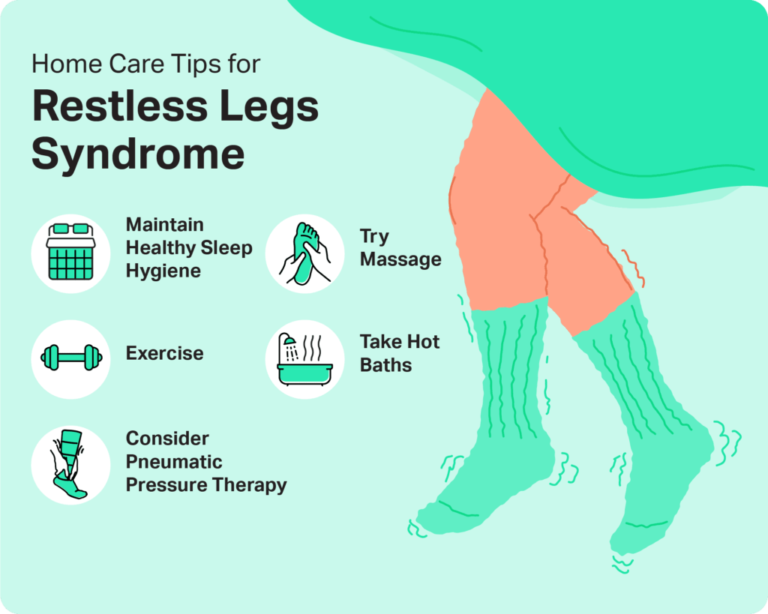Prevent Snoring and Sleep Better with These Effective Ways

Are you tired of waking up groggy and exhausted every morning? Do you suffer from sleep disorders like snoring, sleep apnea, or insomnia? Well, fret not, because Vector Sleep Clinic is here to help you get the uninterrupted sleep you deserve. In today’s fast-paced world, sleep disorders have become increasingly common and can have serious implications on our health and well-being. From heart attacks and strokes to high blood pressure and car accidents, sleep disorders can wreak havoc on our lives. That’s why it’s crucial to consider completing a sleep study and explore effective ways to prevent snoring. At Vector Sleep Clinic, we offer comprehensive care and reliable solutions to ensure you enjoy restful nights and wake up feeling refreshed and rejuvenated. Say goodbye to sleepless nights and hello to a brighter, more energetic tomorrow.
Understanding Snoring
What is snoring?
Snoring is a common sleep phenomenon characterized by loud, harsh noises produced during sleep. It occurs when the flow of air through the mouth and nose is partially blocked, causing the surrounding tissues to vibrate.
Causes of snoring
Snoring can be caused by various factors, including:
- Nasal congestion and allergies
- Obesity and excess weight
- Sleep position
- Alcohol consumption
- Age-related factors such as weakened throat muscles
- Structural abnormalities in the nose or throat
Effects of snoring
Snoring not only disrupts the sleep of those around you, but it can also have negative effects on your own health. Some of the common effects of snoring include:
- Poor quality sleep leading to daytime sleepiness and fatigue
- Strained relationships due to sleep disturbances
- Increased risk of cardiovascular diseases such as hypertension and stroke
- Reduced oxygen levels during sleep, leading to complications like sleep apnea
Importance of Addressing Snoring
Impact on sleep quality
Snoring can significantly impact both your own sleep quality and that of your sleeping partner. The loud noises can disrupt the deep stages of sleep, leading to fragmented and restless sleep patterns. This can result in daytime drowsiness, lack of concentration, and reduced productivity.
Relationship strain
Snoring can strain relationships, causing frustration and discomfort for both you and your partner. The constant interruption of sleep can lead to irritability, mood swings, and decreased intimacy. Addressing snoring can improve the overall quality of your relationship.
Health risks associated with snoring
Snoring should not be taken lightly as it can be a sign of underlying health issues such as sleep apnea. Sleep apnea is a condition in which breathing repeatedly stops and starts during sleep, leading to a decrease in oxygen levels. If left untreated, sleep apnea can increase the risk of cardiovascular problems, such as heart attacks and strokes.
Lifestyle Changes to Prevent Snoring
Maintaining a healthy weight
Excess weight and obesity can contribute to snoring by putting pressure on the airways. Losing weight through a balanced diet and regular exercise can help reduce the severity of snoring.
Avoiding alcohol before bed
Alcohol relaxes the muscles in the throat and can worsen snoring. It is advisable to avoid alcohol consumption at least a few hours before bed to minimize the chances of snoring.
Sleeping on your side
Sleeping on your back can cause the tongue and soft tissues in the throat to collapse, obstructing the airway and leading to snoring. Sleeping on your side can help keep the airway open and reduce the likelihood of snoring.
Elevating your head while sleeping
Raising the head of your bed or using a pillow to elevate your head can help reduce the chances of snoring. This position helps to keep the airway open and allows for improved airflow during sleep.
Using Anti-Snoring Devices
Nasal strips
Nasal strips are adhesive strips that are applied to the outside of the nose. They work by gently lifting and opening the nasal passages, allowing for improved airflow. Nasal strips can be effective in reducing snoring caused by nasal congestion or narrow nasal passages.
Mouthguards
Mouthguards, also known as dental appliances or mandibular advancement devices, are specifically designed to treat snoring and mild to moderate sleep apnea. These devices position the jaw slightly forward, helping to keep the airway open and reduce snoring.
Anti-snoring pillows
Anti-snoring pillows are specially designed pillows that promote proper head and neck alignment, keeping the airway open and reducing snoring. These pillows are often contoured or elevated to provide optimal support for snorers.
Chin straps
Chin straps are worn around the head and under the chin to prevent the mouth from falling open during sleep. This helps to encourage breathing through the nose, reducing the likelihood of snoring caused by mouth breathing.
Medical Interventions for Snoring
Continuous Positive Airway Pressure (CPAP) therapy
CPAP therapy is a common treatment for sleep apnea and can also be effective for snoring. It involves wearing a mask that delivers a constant flow of air pressure to keep the airway open during sleep.
Oral appliances
Oral appliances, also known as mandibular advancement devices, are custom-made devices that fit in the mouth and help to reposition the jaw and tongue, keeping the airway open and reducing snoring.
Surgical options
In some cases, surgical intervention may be necessary to address snoring. Procedures such as uvulopalatopharyngoplasty (UPPP), which involves removing excess tissue in the throat, or laser-assisted uvulopalatoplasty (LAUP), which uses lasers to reshape the tissues, can help reduce snoring.
Natural Remedies for Snoring
Steam inhalation
Steam inhalation can help alleviate nasal congestion and open up the airways, reducing snoring. Adding a few drops of eucalyptus or peppermint essential oil to the steam can further enhance its effectiveness.
Essential oils
Certain essential oils, such as eucalyptus, peppermint, and lavender, have properties that can help reduce congestion and promote easier breathing. Adding a few drops of these oils to a diffuser or a warm bath before bed can potentially improve snoring.
Nasal irrigation
Nasal irrigation involves flushing out the nasal passages with a saline solution. This can help remove mucus and reduce congestion, allowing for better airflow and potentially reducing snoring.
Throat exercises
Practicing specific throat exercises, such as tongue and palate exercises, can help strengthen the muscles in the throat and reduce the likelihood of snoring. These exercises can be learned from a speech therapist or a sleep specialist.
Creating a Sleep-Friendly Environment
Optimizing bedroom conditions
Creating a sleep-friendly environment involves ensuring that your bedroom is cool, dark, quiet, and comfortable. The optimal temperature for sleep is generally between 60 and 67 degrees Fahrenheit, and using blackout curtains or an eye mask can help block out any unwanted light.
Using white noise machines
White noise machines can help mask external noises that may disrupt sleep, including snoring. The soothing, consistent background noise can create a more peaceful sleep environment and potentially drown out the sound of snoring.
Blocking out external noises
If external noises are a consistent hindrance to your sleep, consider using earplugs or investing in soundproofing measures such as soundproof curtains or double-glazed windows.
Maintaining a consistent sleep schedule
Maintaining a consistent sleep schedule by going to bed and waking up at the same time each day helps regulate your body’s internal clock. This can promote better sleep quality and potentially reduce the occurrence of snoring.
The Role of Sleep Position in Snoring
Best positions to reduce snoring
Sleeping on your side is often recommended as the best position to reduce snoring. This allows for better airway alignment and can minimize the chances of the tongue and soft tissues in the throat collapsing, which can lead to snoring.
Avoiding positions that worsen snoring
Sleeping on your back can worsen snoring as it increases the likelihood of the tongue and soft tissues obstructing the airway. Avoiding this position can help reduce snoring and promote better sleep quality.
Using positional therapy devices
Positional therapy devices, such as special pillows or wearable gadgets, are designed to discourage sleeping on the back and encourage side sleeping. These devices can be helpful for individuals who struggle to maintain the proper sleep position on their own.
Managing Allergies and Nasal Congestion
Identifying allergens
Identifying and avoiding allergens that trigger nasal congestion can be beneficial in reducing snoring. Common allergens include dust mites, pollen, pet dander, and certain foods. Keeping a clean and dust-free environment can help minimize exposure to allergens.
Using air purifiers
Air purifiers can help remove allergens and pollutants from the air, improving indoor air quality and reducing the likelihood of nasal congestion. Look for air purifiers with HEPA filters for maximum effectiveness.
Keeping the bedroom clean and dust-free
Regularly cleaning the bedroom, including vacuuming carpets and dusting surfaces, can help minimize dust accumulation and reduce the risk of nasal congestion. Washing bedding frequently can also help remove allergens.
Using nasal decongestants or sprays
In cases of severe nasal congestion, nasal decongestants or saline nasal sprays can provide temporary relief by shrinking swollen blood vessels and reducing inflammation. However, these should not be used as a long-term solution and should be used according to the instructions.
Seeking Professional Help for Snoring
Consulting a sleep specialist
If snoring persists despite lifestyle changes and home remedies, it is advisable to consult a sleep specialist. A sleep specialist can assess your symptoms, conduct a thorough examination, and recommend appropriate treatment options.
Undergoing a sleep study
A sleep study, also known as a polysomnography, may be recommended to gather detailed information about your sleep patterns and any potential underlying sleep disorders. This can help diagnose the cause of snoring and determine the most effective treatment approach.
Discussing treatment options
Once a diagnosis is made, the sleep specialist can discuss various treatment options tailored to your specific needs. This may include lifestyle modifications, oral appliances, or medical interventions such as surgery or CPAP therapy.
Monitoring progress and making necessary adjustments
After starting treatment, regular follow-up appointments with your sleep specialist are crucial. These appointments allow for progress monitoring and any necessary adjustments to the treatment plan to ensure the most effective management of snoring and overall sleep quality.
In conclusion, snoring is a common sleep issue that can have a significant impact on both an individual’s well-being and their relationships. By understanding the causes and effects of snoring and implementing lifestyle changes, using anti-snoring devices, exploring medical interventions, adopting natural remedies, and creating a sleep-friendly environment, individuals can take proactive steps to address snoring and improve sleep quality. If snoring persists despite these efforts, seeking professional help from a sleep specialist can provide a comprehensive evaluation and personalized treatment options to effectively manage snoring and promote restful nights of uninterrupted sleep.








